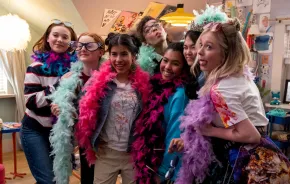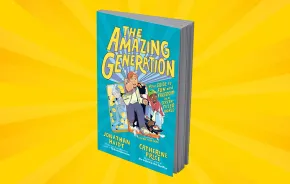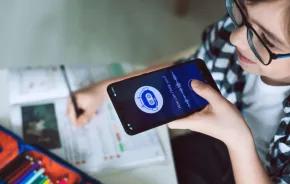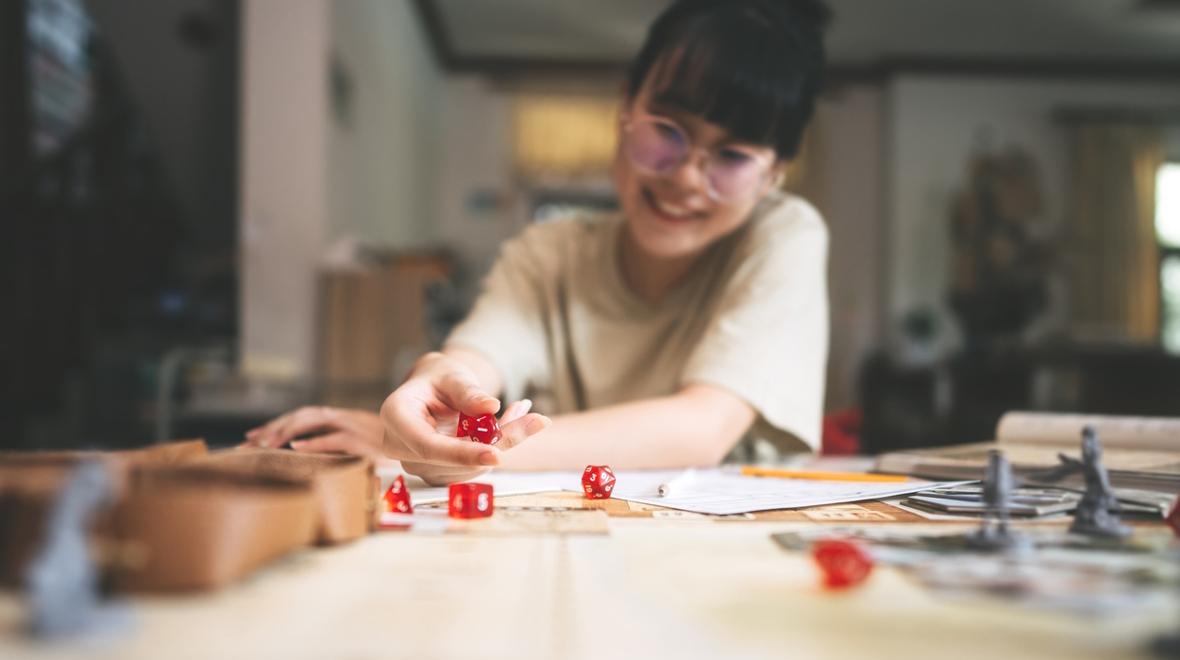
Looking for an activity that involves storytelling, math, creativity and social-emotional skills (and zero screens)? Well, get out the dice, sharpen your pencil and call over a group of friends. It’s time to play Dungeons & Dragons.
Dungeons & Dragons (D&D) was first published as a small box set with three booklets in 1974. The game quickly gained popularity, and 3,000 copies had been sold by 1975. Controversy and misguided fear dogged the game in the 1980s, and it was often seen as a game for nerds.
However, thanks in part to the depiction of the game in some poplar TV shows (including “The Big Bang Theory” and “Stranger Things”), today the game is more popular than ever and played by a wide variety of people. And the 2023 release of the D&D-themed movie “Dungeons & Dragons: Honor Among Thieves” has heightened its popularity even more.
Here are five reasons why you should sharpen your sword, button up your cloak and join the adventure today.
Creativity and storytelling
This might be one of D&D’s most impressive aspects. A game of D&D is centered around a story, known as a campaign. One person acts as the storyteller — aka the Dungeon Master, or DM — and guides the rest of the group through the adventure. Some players love to be the DM, since it allows them to create the story and only they know what is coming next.
You can buy premade campaigns or you can create your own. Creating your own campaign might sound daunting, but you can find plenty of help and ideas online to get you started.
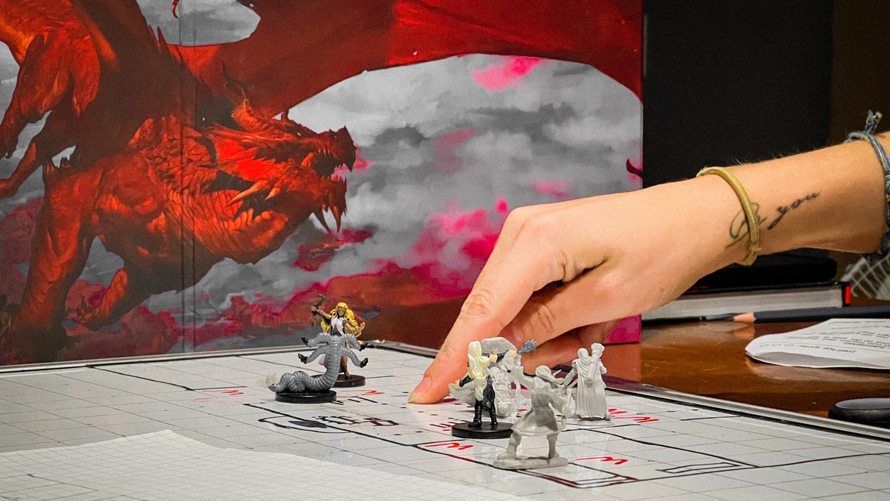
I’ve seen adults get into the creative aspect of the game just as much as (if not more than) the kids! One dad likes to incorporate dramatic lighting and his own curated soundtrack when he is the DM. (Pro tip: “The Lord of the Rings” and the “Game of Thrones” soundtracks make excellent background adventure music.)
Since you can create your own stories, D&D can grow with the players. When players are young, their adventures might be more lighthearted or less complex. As they improve and grow up, campaigns can increase in intensity, requiring more attention and strategy to win. This game will be just as fun when you are 17 as it was when you were 10.
Vocabulary development and active listening
When a group is playing D&D, one person acts as the storyteller, or DM. Everyone else in the group must listen and pay attention to the story line and what challenges are being thrown their way. This can help players improve their active listening skills, as well as memory and critical thinking. Campaigns can be quite complex, and listening, remembering what already happened, while trying to determine what might happen next are critical aspects of the game.
D&D can also help children increase their vocabulary. When creating a character, dice are rolled to determine their “strength, dexterity, constitution, intelligence, wisdom and charisma.” Understanding what those terms mean is key to creating a strong, well-rounded character.
And just look at this sentence from the “Monster Manual” describing one of the many, many monsters (Chuuls) you’ll find in the worlds of D&D: “Survivors of the ancient aboleth empire, Chuuls are crustaceans that the aboleths modified and endowed with sentience.” Understanding and using vocabulary this complex is every Language Art’s teacher’s dream!
Teamwork and solving problems
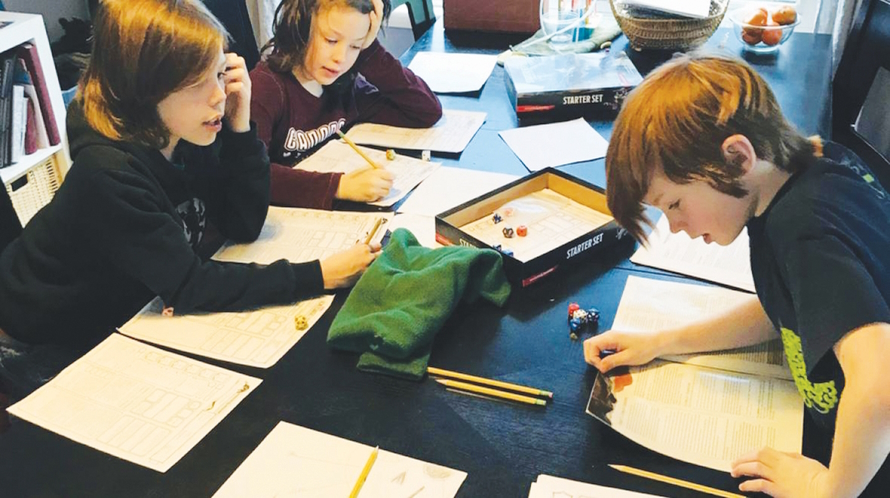
D&D is a team game, and the only way to win is to work together. Should you fight the monster or run? Should you go down a dark path or turn around? All players have to work together to come to a decision and take action.
Each player creates a character with strengths, weaknesses and skills, and a combination of characters is essential. You can’t win if everyone insists on being the same kind of character, a powerful Fighter, for example. Wizards, Rogues, Paladins and Clerics all bring their own skills and abilities to the game that are vital. Diverse characters are needed for success, just like in real life.
Social-emotional learning skills
According to a recent study, playing D&D can help children develop their social and emotional learning (SEL) skills. SEL skills include self-awareness, self-management, responsible decision-making, relationship skills and social awareness. The study found that when kids played D&D together they had opportunities to improve these skills, including learning from conflict, taking on different roles and working together as a team.
When kids play D&D, they naturally build these skills by working together to combine different characters’ skills and strengths, make decisions and build empathy for their fellow players.
Math
Almost everything in D&D is determined by rolling dice, and not your typical square variety. Oh, no. The world of D&D requires a monstrous 20-sided die (known as a D20). Finding out if your character can banish the monster waiting to ambush you or if the monster will win all comes down to a roll of the die.
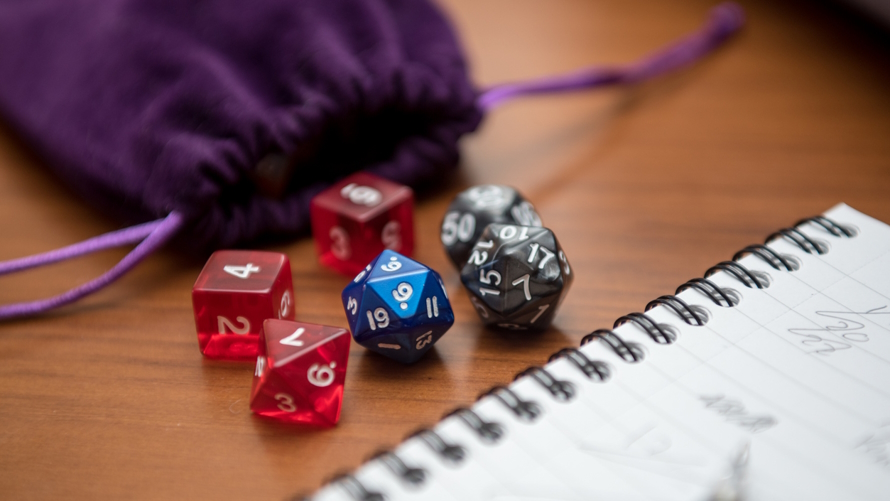
While the math is nothing too advanced (basic addition, subtraction and a little multiplication), this game requires players to constantly use those math muscles. Since this math is in the context of a game, a child who may be less interested in math at school might suddenly be able to quickly add larger numbers in their head when the fate of their group’s campaign is on the line.
D&D is a great way for kids and adults alike to engage their creativity, employ their problem-solving skills and just have fun. So, gather around the dining room table, put aside the electronics and settle in for hours (and hours and hours) of entertainment.
Getting started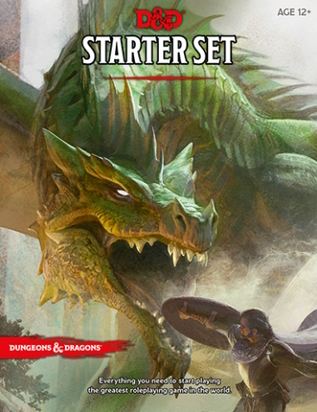
Ready to play, but not sure how to start? Here are a few ideas: D&D starter set. If you want to make sure you have everything you need for your first D&D gathering, consider picking up a starter set. It includes a rulebook, an adventure and enough dice for six players. DnD Adventure Club is another great way to get the younger crowd started. For a monthly subscription fee, you get an adventure, new character, and tips and tricks mailed to you every month. The site also offers a quick-start guide, a starter pack and dice. And the best part? These adventures are created for kids ages 8–12, (but can be played by children as young as 5 with some grown-up help). Wizards of the Coast guides. Since 1997, Wizards of the Coast (located in Renton) has owned D&D. You will find great info on its website about how to get started, including how to play, how to be a DM and a quiz to help you figure out which character to try first. Join an organized adventure. If you want to play but are still looking for other adventurers to join you in your quest, consider going to an organized D&D event. Game stores such as Mox Boarding House host D&D adventures that anyone 12 and older can join, no experience necessary! Mox has locations and events in Seattle, Bellevue and Portland. Some groups are for beginners, some are for more advanced players. Check the website for more details. If your child is of school age, check to see if their school has a D&D club. If not, consider encouraging your child to start one! Sign up for a Dungeons & Dragons summer camp! Several local organizations host in-person Dungeons & Dragons summer camps, including Three Dragons Academy in Seattle’s Queen Anne neighborhood, the Edmonds Center for the Arts, The Evergreen School in Shoreline and others. Outschool offers dozens of online D&D clubs, campaigns and classes.
|









